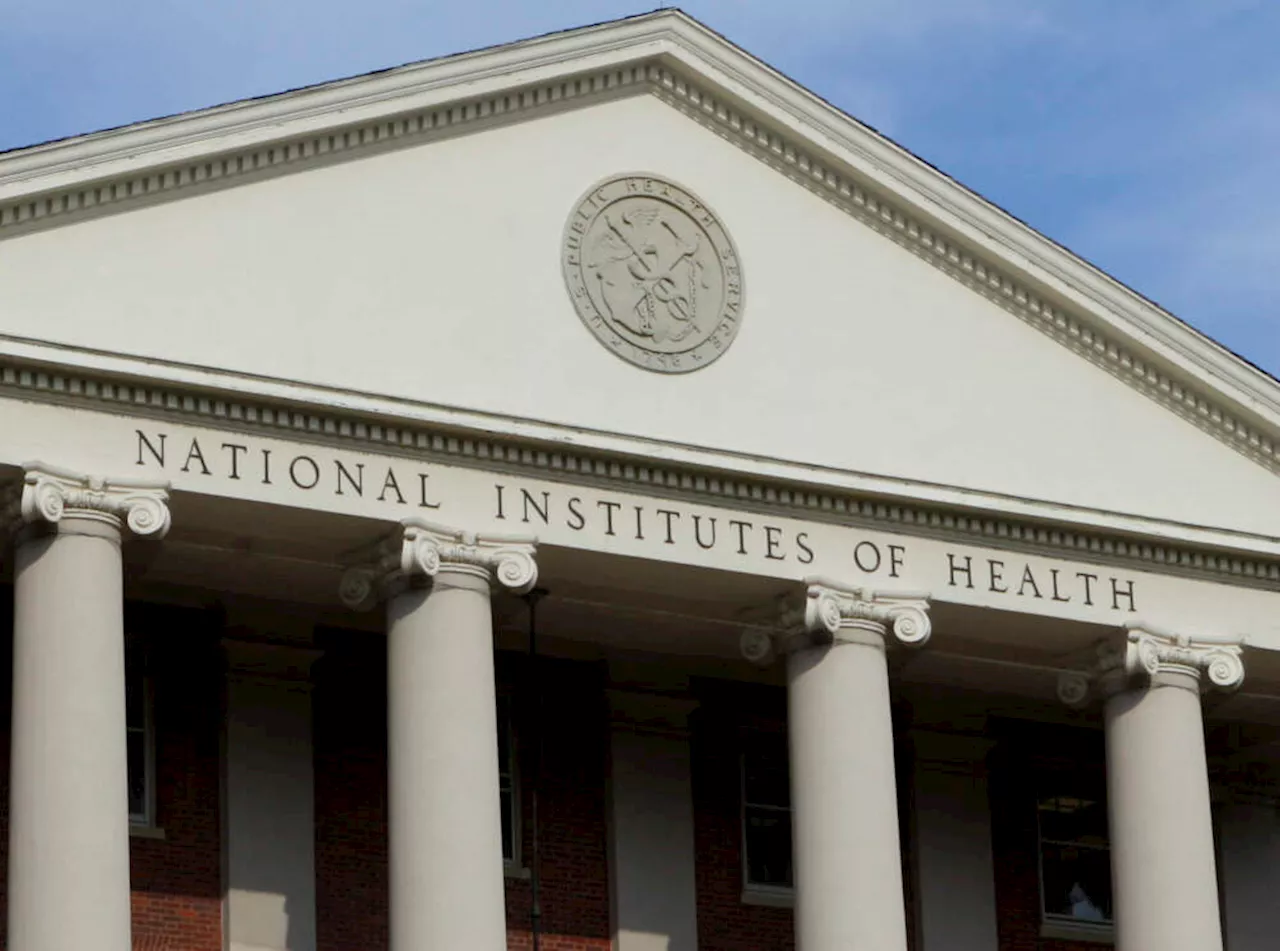A federal judge in Massachusetts has temporarily blocked President Trump’s plan to cut funding for the National Institutes of Health.
) - A federal judge in Massachusetts has temporarily blocked President Trump’s plan to cut funding for the National Institutes of Health .
If that funding is cut, it would affect research entities nationwide, like UAB, which records show received almost $500 million from NIH in 2023. The Trump administration announced Friday night it’s cutting the amount of funding the NIH pays for overhead costs at research institutions. Senator Tommy Tuberville says the cuts would be Trump’s way of fulfilling his promise to cut wasteful federal spending.
“Drastically lowering NIH indirect cost recovery jeopardizes life-saving research, and it would also result in job and economic loss in Birmingham and Alabama. If the reduction remains in place, advancements in virtually all areas of research would slow, including those addressing the leading causes of death in the United States, from cancer to Alzheimer’s, stroke, Parkinson’s, heart disease and diabetes, among other diseases and disorders that devastate lives and families.
News Funding Cuts Federal Funding Uab Nih National Institutes Of Health Birmingham Alabama Research Entities Trump Administration Federal Spending
United States Latest News, United States Headlines
Similar News:You can also read news stories similar to this one that we have collected from other news sources.
 NIH Rate Cut Could Cost UAB $70 Million AnnuallyA proposed rate cut at the National Institutes of Health (NIH) could cost the University of Alabama at Birmingham (UAB) approximately $70 million per year, according to university officials. The cut, which reduces the indirect cost recovery rate to 15%, has sparked concern about its impact on life-saving research, job security, and the economic well-being of Birmingham and Alabama. UAB, the largest employer in Alabama, relies heavily on NIH funding, which totals $400 million to $413 million annually. Alabama officials, including Mayor Randall Woodfin, have voiced opposition to the cuts, arguing that they will hinder research advancements and jeopardize the nation's competitiveness in the global scientific arena.
NIH Rate Cut Could Cost UAB $70 Million AnnuallyA proposed rate cut at the National Institutes of Health (NIH) could cost the University of Alabama at Birmingham (UAB) approximately $70 million per year, according to university officials. The cut, which reduces the indirect cost recovery rate to 15%, has sparked concern about its impact on life-saving research, job security, and the economic well-being of Birmingham and Alabama. UAB, the largest employer in Alabama, relies heavily on NIH funding, which totals $400 million to $413 million annually. Alabama officials, including Mayor Randall Woodfin, have voiced opposition to the cuts, arguing that they will hinder research advancements and jeopardize the nation's competitiveness in the global scientific arena.
Read more »
 NIH Funding Cap Threatens Massachusetts Research, Harvard Medical School Faces $60 Million ReductionMassachusetts, leading in NIH grant funding per capita, faces potential research disruption due to new NIH policy capping administrative costs. Experts express concern over the impact on ongoing research projects and the potential for job losses. Harvard Medical School, facing a $60 million cut, warns of drastic measures to mitigate the funding shortfall.
NIH Funding Cap Threatens Massachusetts Research, Harvard Medical School Faces $60 Million ReductionMassachusetts, leading in NIH grant funding per capita, faces potential research disruption due to new NIH policy capping administrative costs. Experts express concern over the impact on ongoing research projects and the potential for job losses. Harvard Medical School, facing a $60 million cut, warns of drastic measures to mitigate the funding shortfall.
Read more »
 Massachusetts Businesses Prepare for Potential Impact of Federal Immigration EnforcementWorried about increased federal immigration enforcement, some Massachusetts businesses are taking steps to prepare. The Associated Industries of Massachusetts (AIM) is advising members to post 'Know Your Rights' posters, review workplace policies, and establish response plans. Experts warn that deportations could lead to significant labor shortages in industries like construction, transportation, and healthcare.
Massachusetts Businesses Prepare for Potential Impact of Federal Immigration EnforcementWorried about increased federal immigration enforcement, some Massachusetts businesses are taking steps to prepare. The Associated Industries of Massachusetts (AIM) is advising members to post 'Know Your Rights' posters, review workplace policies, and establish response plans. Experts warn that deportations could lead to significant labor shortages in industries like construction, transportation, and healthcare.
Read more »
 NIH to Slash Indirect Cost Rates, Sparking Debate on Impact of Medical Research FundingThe National Institutes of Health (NIH) announced a plan to lower the maximum indirect cost rate for government-funded medical research to 15%, aiming to save billions of dollars annually. This move has sparked controversy, with some experts warning of potential harm to biomedical research while others see it as a necessary step to improve efficiency.
NIH to Slash Indirect Cost Rates, Sparking Debate on Impact of Medical Research FundingThe National Institutes of Health (NIH) announced a plan to lower the maximum indirect cost rate for government-funded medical research to 15%, aiming to save billions of dollars annually. This move has sparked controversy, with some experts warning of potential harm to biomedical research while others see it as a necessary step to improve efficiency.
Read more »
 NIH Funding Cuts Could Impact Alabama Healthcare, Jobs, and Medical BreakthroughsPlanned funding cuts by the National Institutes of Health (NIH) could significantly impact Alabama's healthcare system, job market, and future medical advancements. The NIH announced immediate cuts to indirect research costs, which support essential institutional overhead for research institutions across the state.
NIH Funding Cuts Could Impact Alabama Healthcare, Jobs, and Medical BreakthroughsPlanned funding cuts by the National Institutes of Health (NIH) could significantly impact Alabama's healthcare system, job market, and future medical advancements. The NIH announced immediate cuts to indirect research costs, which support essential institutional overhead for research institutions across the state.
Read more »
 Lido Impact Staking: Revolutionizing Sustainable Social Impact FundingLido Impact Staking (LIS) launches on January 15th, 2025, offering a groundbreaking approach to sustainable funding for social impact. Users can stake ETH, stETH, or wstETH and allocate staking rewards to causes they support, creating a perpetual funding stream for impactful projects.
Lido Impact Staking: Revolutionizing Sustainable Social Impact FundingLido Impact Staking (LIS) launches on January 15th, 2025, offering a groundbreaking approach to sustainable funding for social impact. Users can stake ETH, stETH, or wstETH and allocate staking rewards to causes they support, creating a perpetual funding stream for impactful projects.
Read more »
